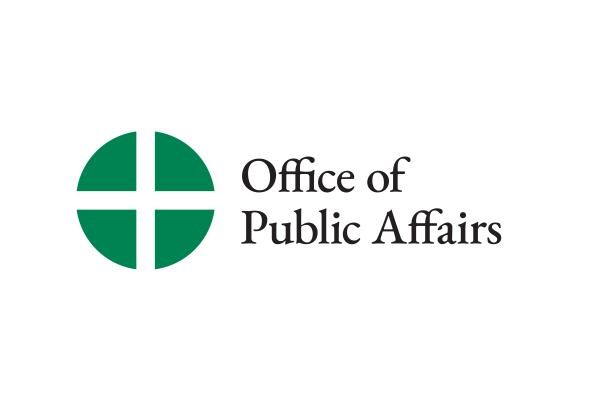Labor Day Statement Says Renewed Respect For Workers Is Key To Renewed Economy
WASHINGTON—People of faith standwith people who've been left behind and should seek economic renewal that makesworkers and their families a central concern, according to the annual Labor DayStatement from the Committee on Domestic Justice and Human Development of theU.
WASHINGTON—People of faith standwith people who've been left behind and should seek economic renewal that makesworkers and their families a central concern, according to the annual Labor DayStatement from the Committee on Domestic Justice and Human Development of theU.S. Conference of Catholic Bishops (USCCB).
"Millions of Americans suffer fromunemployment, underemployment or are living in poverty as their basic needs toooften go unmet. This represents a serious economic and moral failure for ournation," wrote the committee's chairman, Bishop Stephen E. Blaire of Stockton,California, in the statement, PlacingWork and Workers at the Center of Economic Life.
Bishop Blaire cited the 12 millionAmericans officially unemployed, the millions more who are underemployed or whohave given up looking for work, 10 million "working poor" families, and 46million people, including 16 million children, living in poverty as a sign of abroken economy. He cited the words of Pope Benedict XVI, who said poverty often"results from a violation of the dignity of human work," either because of alack of job opportunities or because, in the words of Pope John Paul II, "lowvalue is put on work and the rights that flow from it."
According to Bishop Blaire, the"terrible human costs" of a broken economy include workers being exploited ormistreated, stagnant or falling wages, and stress on families. As a result,"many employees struggle for just wages, a safe workplace, and a voice in theeconomy, but they cannot purchase the goods they make, stay in the hotels theyclean, or eat the food they harvest, prepare, or serve."
"An economy that allows thisexploitation and abuse demands our attention and action," wrote Bishop Blaire.He noted that the bishops work to provide hope and help to exploited workersthrough programs such as USCCB Migration and Refugee Services and the CatholicCampaign for Human Development, but said that "everyone and every institution"in society—businesses, government, unions and private institutions—shouldcollaborate to support workers and create an economy "that serves the personrather than the other way around."
"This Labor Day, millions of workingpeople and their families have urgent and compelling needs," Bishop Blaireconcluded. "I ask you to join me in a special prayer for them and all workers,especially those without a job struggling to live in dignity. May God guide ournation in creating a more just economy that truly honors the dignity of workand the rights of workers."
The full 2012 Labor Day statementcan be found online in English at www.usccb.org/issues-and-action/human-life-and-dignity/labor-employment/labor-day-statement-2012.cfmand in Spanish atwww.usccb.org/issues-and-action/human-life-and-dignity/labor-employment/declaracion-del-dia-del-trabajo-2012.cfm.
---
Keywords: Bishop Stephen E. Blaire, Pope Benedict XVI, PopeJohn Paul II, U.S. Conference of Catholic Bishops, USCCB, U.S. bishops,Committee on Domestic Justice and Human Development, poverty, unemployment,joblessness, exploitation, human trafficking, children, CCHD, Catholic Campaignfor Human Development, Migration and Refugee Services (MRS), Caritas in Veritate, labor unions,government, business, charity
# # # # #
MEDIA CONTACT ONLY:Don ClemmerO: 202-541-3206Email
